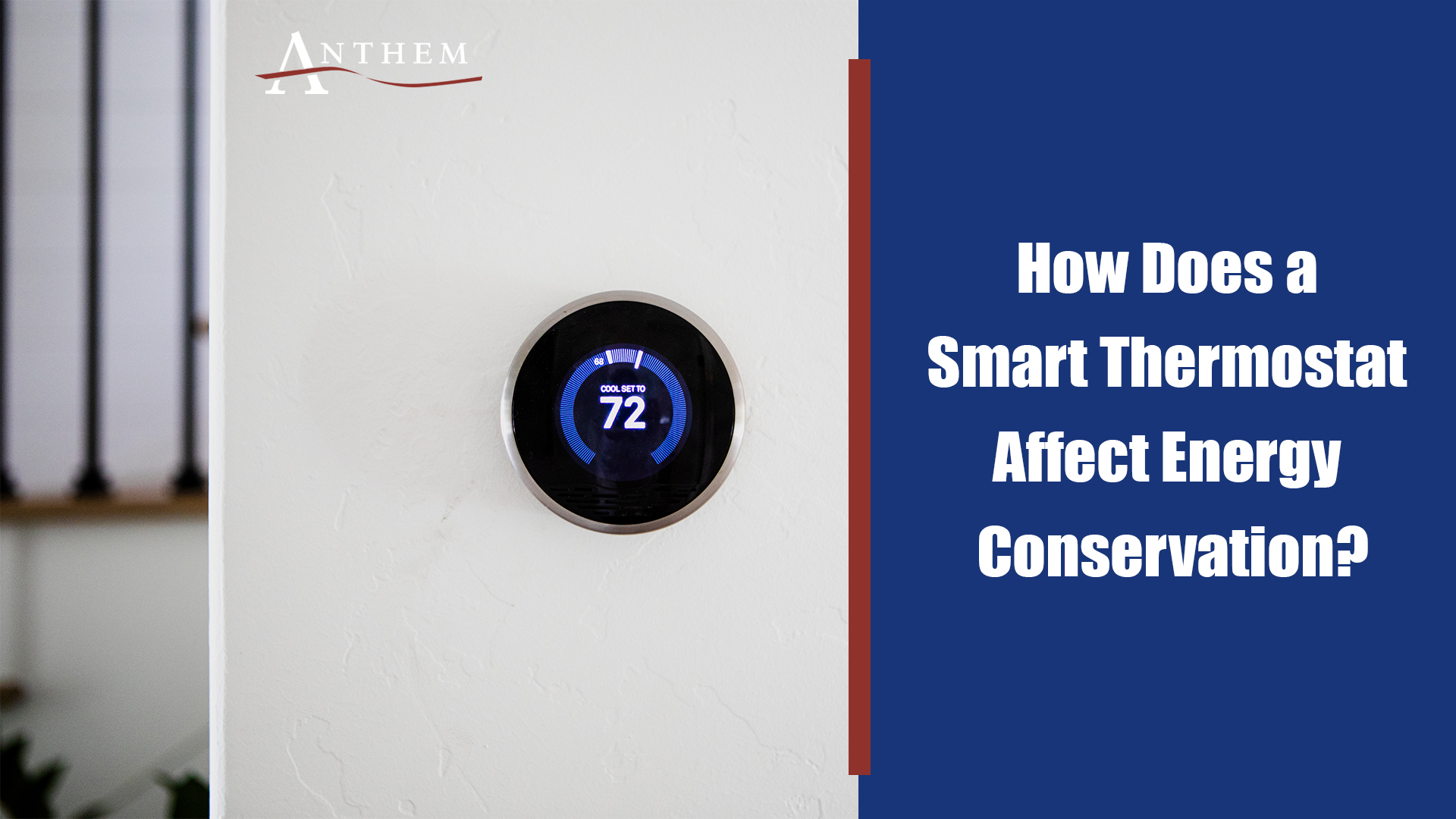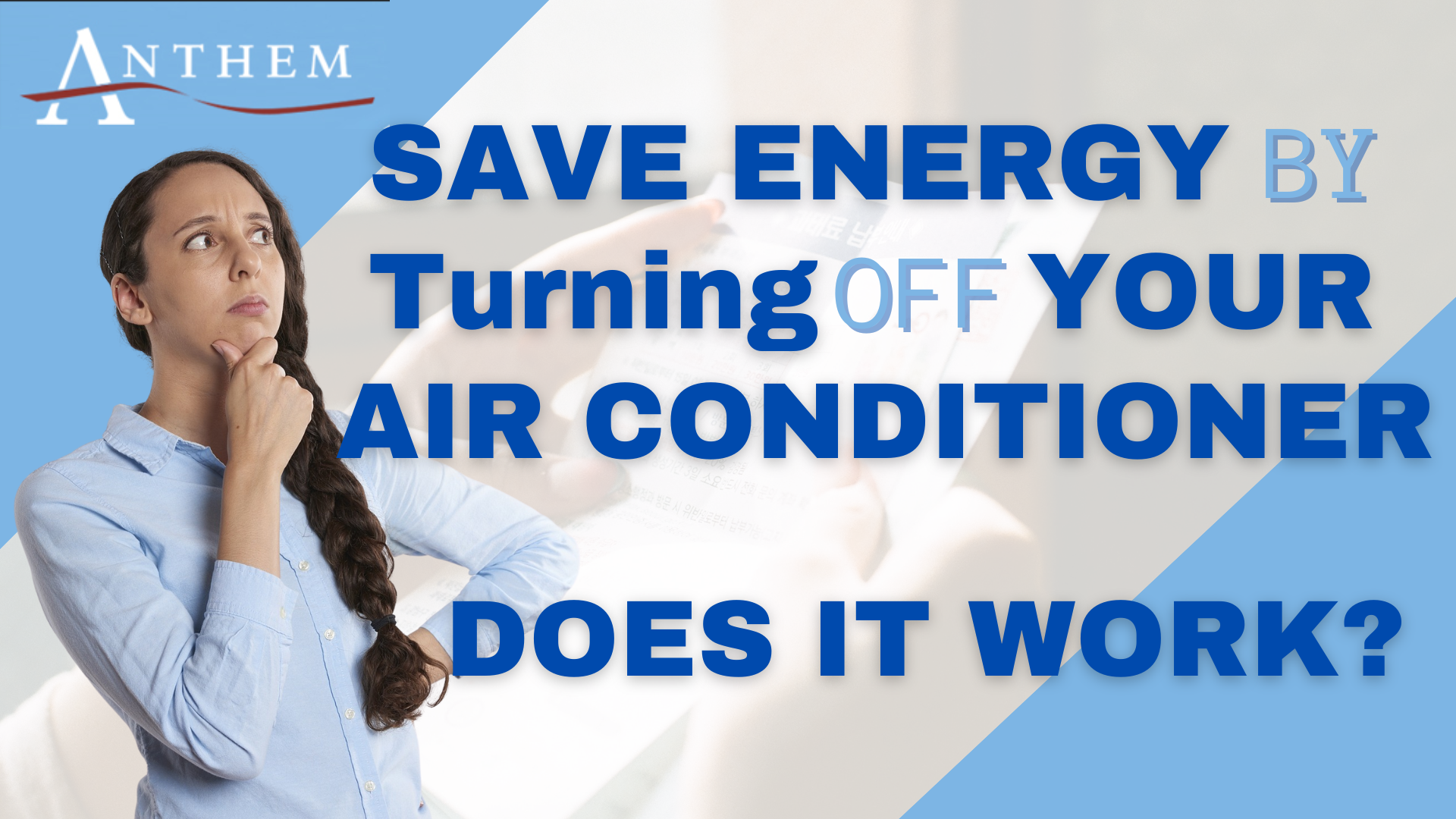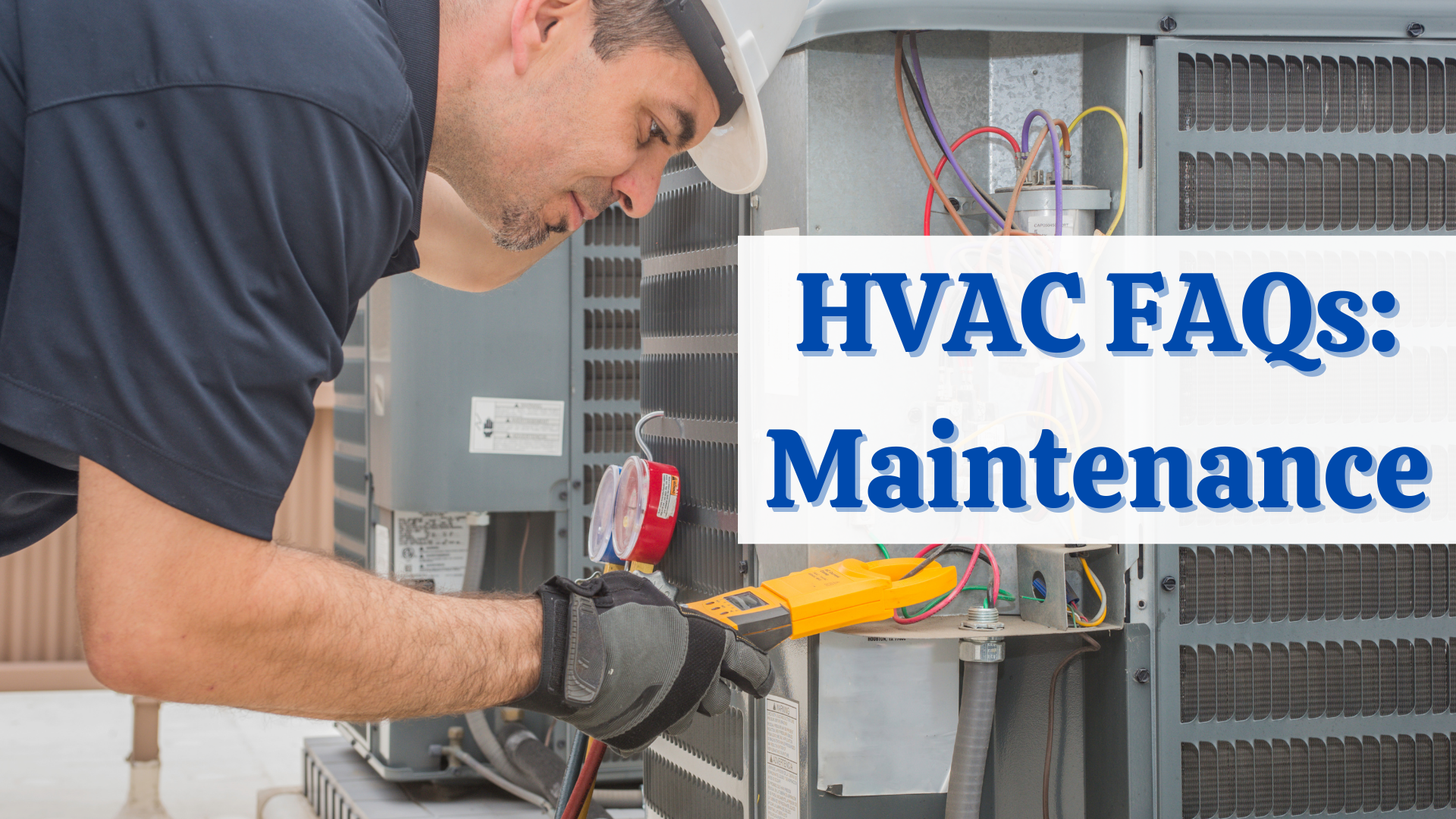Discover the benefits of smart thermostats! Enhance comfort, save on energy costs and integrate with your smart home. Learn more now!
Continue readingChoosing the Right Thermostat for Your Desert HVAC System
Keep cool this summer with smart HVAC strategies in your desert home! Don’t let the heat wave bring you down – stay comfy and cozy all season long. One significant decision that many homeowners tend to overlook is choosing the right thermostat. After all, since a thermostat controls temperature and energy use within your home, it’s important to select an option that balances comfort with efficiency. So if you’re currently living in a desert climate and want to make sure you pick the ideal thermostat for a sustainable and comfortable environment indoors, then read on!
Types of Thermostats HVAC Systems in the Desert:
There are several types available for desert HVAC systems:
Manual Thermostats: These thermostats are the most basic. They require you to manually adjust the temperature settings. They are generally the least expensive option but offer the least amount of convenience.
Programmable Thermostats: These thermostats allow you to program temperature settings in advance. They are more convenient than manual thermostats and can help you save money on your energy bills.
Smart Thermostats: Just by using your smartphone or virtual assistant, like Amazon Alexa or Google Assistant, you have total climate control right at your fingertips! Get on board with this high-tech way of living and enjoy effortless temperature management in any room, anytime. They offer the most convenience and can help you save the most money on your energy bills.

Factors to Consider When Choosing a Thermostat:
Compatibility with Your HVAC System:
When shopping for a thermostat to regulate the climate in your desert HVAC system, compatibility is key. You don’t want any surprise malfunctions or miscommunications between you and your technology – make sure that the model of the thermostat perfectly pairs with what’s already installed!
Programmability:
Are you looking for a smart way to save on energy costs? Programmable thermostats could be the perfect solution – letting you customize temperature settings in advance. Not only do these clever devices minimize your expenses, but they adjust usage when no one is around!
Accuracy:
Choose a thermostat that is accurate and reliable. This will ensure that your HVAC system maintains a consistent temperature and operates efficiently.
Ease of Use:
Making the right thermostat decision for your home can make a world of difference. Select one that is user-friendly and allows you to easily adjust temperatures with programming features – so climate control becomes as effortless as pressing a button!
Additional Features:
Consider whether you want additional features like Wi-Fi connectivity or voice control. These features can add convenience but may also increase the cost of the thermostat.

How Much Should You Expect to Spend?
When it comes to temperature control, the options are endless. Manual thermostats start at just $20 and can do an excellent job of regulating your surroundings – but if luxury is what you’re after, then a smart device with energy-saving features could be well worth its higher price tag! Yet regardless of your selection, you ought not to forget that what matters most, in the end, may not be how much you initially spent on your purchase – but rather any potential savings down the road when taking full advantage of its features and benefits!
FAQs
- Which is the most energy-efficient?
- Making the right thermostat decision for your home can make a world of difference. Select one that is user-friendly and allows you to easily adjust temperatures with programming features – so climate control becomes as effortless as pressing a button!
- Can I install a thermostat myself?
- Some thermostats can be installed by homeowners, while others require professional installation. Check the installation instructions before making a purchase.
- Are smart thermostats worth the investment?
- Yes! With personalized settings that adjust to your schedule, you can enjoy peace of mind knowing energy costs won’t get out of control. Get ready for cozy convenience as well as financial savings!
- How can I know if a thermostat is compatible with my HVAC?
- Check the manufacturer’s specifications or consult with a professional HVAC technician.
- How do I know which type of thermostat is right for my desert HVAC system?
- Consider your needs and budget. Manual thermostats are the least expensive but offer the least amount of convenience, while smart thermostats are the most expensive but offer the most advanced features. Programmable thermostats are a good middle ground, offering convenience and energy-saving options.
Conclusion
Do you have a desert HVAC system that needs help regulating the temperature? Don’t sweat it! Save yourself some money in the long run by researching your options and picking out just what ya need. It’s worth spending time on! The most important takeaway is considering everything from compatibility and features to ease of use, brand and model, and budget.
Investing in a more expensive thermostat with advanced features could save you energy costs down the road. Ultimately, Anthem can provide support and knowledge through their HVAC experts to help guide you in making the best decision for your unique heating and cooling needs. So don’t put it off any longer — contact us today if you need assistance or have any questions. We hope this blog post has helped you come to an informed conclusion about what type of thermostat will best suit your desert home or business!
Don’t Let HVAC Problems Keep You Uncomfortable
Are you having trouble with your home’s HVAC system? Don’t sit in discomfort for a second longer. Make sure your house is at an optimum temperature this season by addressing any lingering HVAC issues as soon as possible. Ignoring the problem will not only lead to increased discomfort now, but it could also lead to more expensive repairs down the line. Make sure you’re able to stay comfortable every season by taking care of your heating and cooling systems now.
Dirty Air Filters
We don’t often think about them, but air filters play a major role in the comfort and efficiency of our homes. Dirty air filters are one of the most common HVAC problems. They can reduce airflow, making your system work harder and consume more energy. But luckily, it’s easy to prevent this issue by simply replacing your air filters every one to three months, depending on usage. Let’s take an in-depth look at why air filters are so valuable to our homes.
What is an Air Filter?
An air filter is a device used to remove harmful particles from the air before they enter your home or office. It accomplishes this by trapping airborne particles and preventing them from passing through its fibers. The size of the particles that an air filter can trap depends on the type of filter and its MERV rating (Minimum Efficiency Reporting Value). High-efficiency filters can reduce up to 95% of airborne particles like dust mites, mold spores, pet dander, smoke, bacteria, and pollen. This is incredibly important for people suffering from allergies or respiratory illnesses like asthma. It prevents them from coming into contact with these particles that could trigger an attack.
What Happens When You Don’t Change Your Air Filter?
Air filters should be changed regularly in order to maintain their effectiveness. If you don’t change your filter frequently enough—or worse yet, not at all—your HVAC system will have to work harder than usual to push air through it. This increased strain on the system leads to a decrease in efficiency which translates into higher energy bills for you. Additionally, neglecting your air filter can lead to dirt buildup, which increases wear and tear on other components of your HVAC system, such as the fan motor or compressor, resulting in costly repairs down the line. Last, dirty air filters can also reduce indoor air quality as they become less effective over time at removing airborne pollutants from the home environment.
Refrigerant Leaks
Refrigerant is the lifeblood of an air conditioning system, and it needs to be in good working order for your AC to cool properly. Unfortunately, refrigerant leaks are common in AC systems and can cause serious damage if not addressed quickly. If you notice any signs of a refrigerant leak—such as decreased cooling power or a hissing sound coming from the unit—it’s important to call an HVAC technician immediately so they can diagnose and repair the issue.
What Causes Refrigerant Leaks?
There are several potential causes of a refrigerant leak, but most often, they are caused by worn seals or punctures in the lines that carry refrigerant through the system. These issues can occur due to normal wear and tear over time, or they may be caused by improper maintenance or installation. It’s important to remember that refrigerant is hazardous if inhaled, so it’s best not to try and fix this issue yourself. Instead, call a professional HVAC technician who can safely evaluate and repair your AC system.
How Can An HVAC Technician Help?
An experienced HVAC technician will first inspect your air conditioning unit for signs of damage or corrosion that could indicate a possible leak. If needed, they will likely use special tools like infrared cameras or pressure gauges to detect any hidden leaks within the system. Once they’ve identified the source of the problem, they’ll be able to make repairs as necessary and refill your AC with fresh refrigerant so it can start working again. The technician will also check that all parts are functioning properly before leaving, so you don’t have to worry about any further issues down the road.

A Word on Maintenance
The best way to prevent a refrigerant leak (and other potential problems) is with regular maintenance on your air conditioner. An experienced HVAC technician should inspect your AC at least once per year—ideally just before summer when you’ll need it most—to ensure everything is in good working order. This will help catch any small issues before they become bigger problems, saving you money and hassle down the road!
Faulty Thermostat
You’ve been sweltering in the summer heat and shivering in the winter chill, and you can’t seem to get your home to the perfect temperature no matter what you do. You may think it’s time for a new HVAC system, but the problem may actually lie with your thermostat. A faulty thermostat can cause your HVAC system to stop working properly and lead to higher energy bills and reduced comfort. Let’s take a closer look at how this works and how you can ensure your thermostat is working correctly.
How Thermostats Work
Your thermostat is responsible for controlling the temperature of your home. It monitors the current temperature of your home and turns on or off heating or cooling as needed to maintain that level. In order for this system to work correctly, the thermostat must be calibrated correctly so that it knows when to turn on or off. If it is not calibrated correctly, it can cause your system to run continuously, resulting in higher energy bills while also failing to keep you comfortable in your own home.
When To Replace Your Thermostat
If your thermostat is outdated or not working properly, it may be time for a replacement. Newer models are much more efficient than their predecessors and feature digital displays that allow for more precise control over temperatures in both hot and cold climates. Additionally, many modern thermostats are programmable—allowing you to set specific temperatures for different times throughout the day—and have built-in Wi-Fi capabilities so you can control them from anywhere in the world via a smartphone app or web browser.
Clogged Drain Line
Proper maintenance of your HVAC system is essential to keeping your home safe and comfortable. One often overlooked area of maintenance is cleaning the drain line. Without regular care, a clogged drain line can cause water to back up into your home, leading to mold growth and other problems. Keep reading to learn how you can prevent this from happening.
What You Need To Know About Your HVAC System’s Drain Line
Your HVAC system has a drain line that helps remove condensation from the unit. Over time, dirt and debris can build up in this line, causing it to become clogged and preventing proper drainage. If left unchecked, this can lead to water damage inside your home. To avoid this issue, it’s important to clean the drain line regularly.

How to Clean Your Drain Line
Cleaning your drain line is a relatively simple process that requires only basic tools and supplies. Begin by locating the access panel on the side of your unit (this will be clearly marked). Once you’ve found it, open the panel and locate the hose that leads out of the unit. This is where the condensation will flow out when working properly. Disconnect this hose from its connection point and inspect it for any blockages or buildup. If you find any, use a brush or vacuum attachment to remove them as best you can. Finally, reconnect the hose and close up the access panel before running some test cycles on your unit to make sure everything is working correctly.
Take Proactive Steps To Avoid Future Issues
In addition to cleaning your drain line regularly, there are other steps you can take proactively in order to avoid future issues with drainage in your HVAC system. Start by making sure that all air filters are replaced frequently. A dirty filter can obstruct airflow and lead to increased moisture buildup within your system, which could cause drainage issues over time. Additionally, be sure not to overload your system with too many activities at once, as this could also cause drainage problems down the road. Taking these steps now will help ensure that your HVAC system continues functioning properly for years to come.
Conclusion
The bottom line is that taking care of your heating and cooling systems throughout the year will keep you and your family comfortable now, and in seasons to come. Investing in HVAC maintenance or repair can save you a significant amount of money in the long run. Don’t put yourself through unnecessary discomfort. Take the time to identify any potential problems and have them addressed accordingly.
Anthem has an experienced team of technicians who make sure their clients’ home-comfort needs are taken care of promptly and with the utmost professionalism each time. Our dependable solutions ensure that your heater or air conditioner is in its best condition to provide cool comfort come summer or warm comfort during winter. Let Anthem keep your HVAC running smoothly — call us today to schedule an appointment!
7 Reasons to Upgrade to an Energy-Efficient HVAC
Are you ready to make your home more efficient this winter? Spending thousands of dollars on an upgrade like a new HVAC system can be daunting, but the rewards far outweigh the upfront cost. Not only will it help you save money on energy bills throughout the year, but it will also create a healthier environment for you and your family. If you live in Palm Springs, upgrading to an energy-efficient HVAC system is even more important due to how cold temperatures can get during winter months. Here’s why investing in a quality HVAC system now could pay off big come wintertime.
Save Money
One of the primary benefits of upgrading to a more energy-efficient HVAC system is that you will save money on your energy bills. A more efficient system will use less energy to heat and cool your home, which will lower your utility costs. In fact, you may even be eligible for government rebates or tax credits when you upgrade to a more efficient system.
Reduce Your Carbon Footprint
Another benefit of upgrading to a more energy-efficient HVAC system is that you will help to reduce your carbon footprint. Heating and cooling your home accounts for a significant portion of your home’s energy use and, thus, its carbon footprint. By switching to a more efficient system, you can help to reduce the amount of greenhouse gasses emitted into the atmosphere.

Improve Indoor Air Quality
Upgrading to a more energy-efficient HVAC system can also improve indoor air quality. Many older systems recirculate air within the home, which can lead to the build-up of dust, pollen, and other allergens. A more efficient system will provide fresh air from outside, which can help to improve respiratory health.
Fewer Repairs
Another benefit of upgrading to a more energy-efficient HVAC system is that you may need fewer repairs. Older HVAC systems tend to break down more often than newer, more efficient models. This is because they are not able to operate as efficiently, which puts additional strain on the system. By upgrading to a more efficient system, you can help prolong your HVAC system’s life and avoid costly repairs.
Enhanced Comfort
Another benefit of upgrading to a more energy-efficient HVAC system is enhanced comfort. Older HVAC systems often leave rooms feeling stuffy or too warm/cool, which can be uncomfortable for occupants. Additionally, drafts from old windows and doors can make it difficult to maintain a comfortable temperature in your home. By upgrading to an energy-efficient system, you can help to create a more comfortable environment in your home.
Extend the Life of Your HVAC System
Another benefit of upgrading to a more energy-efficient HVAC system is that it can help to extend the life of your existing system. By using less energy, your system will not have to work as hard, which can help it last longer. Additionally, many newer systems come with extended warranties, so you can be sure that your investment is protected.

Increase Home Value
Finally, upgrading to a more energy-efficient HVAC system can also increase the value of your home. Homes with energy-efficient features are in high demand among today’s buyers and, thus, tend to sell for higher prices than homes without these features. If you’re planning on selling your home in the near future, an upgraded HVAC system could be a valuable selling point.
Conclusion
In conclusion, we hope that this blog post has made it clear that when it comes to keeping your home comfortable throughout the seasons, investing in an energy-efficient HVAC system should be a top priority. Not only will you save money in the long run from reduced energy bills, but also you’ll have peace of mind knowing that the HVAC system can handle whatever the weather throws your way. So don’t wait until it’s too late – upgrade to an energy-efficient HVAC system today and start reaping its benefits right away.
If you have questions about what type of system is right for your home, our Anthem Heating & Air Conditioning experts are standing by to help. We have years of experience and the know-how to answer any question or concern regarding HVAC systems. So take advantage of our experts today and let Anthem Heating & Air Conditioning get you on track toward saving money on heating and cooling costs.
Anthem Heating & Air Conditioning
Our goal is to help make it as easy as possible for you to acquire the systems to make your home more comfortable and energy efficient. With this in mind, we offer a variety of financing options and can assist you with additional programs as well, such as government tax rebates and credits for efficiency-based products, including solar equipment, windows, pool pumps, and more.
The Importance of Winterizing Your HVAC in Palm Springs
Palm Springs is an extremely desirable location for many people. With perfect weather, endless sunshine, and plenty of entertainment. It’s no wonder why so many people flock to Palm Springs every year. However, there are still a few things that come with living in the desert climate. One of those is the importance of winterizing your HVAC system. Although temperatures don’t drop to extremes in Palm Springs during the winter months, laying the groundwork beforehand can help extend the life of your unit and save you money on energy bills, in addition to providing better air quality inside your home throughout cold months. Keep reading as we explain some tips on how best you can get prepared for colder days ahead.
Change Your Filters
HVAC filters provide many benefits to the homeowner. It is important to change them regularly. HVAC filters not only act as protectors of your HVAC system, but they can also help maintain quality air within the home. Many HVAC units use filters that remove dirt, dust, pollen, and other pollutants from the air. If you don’t change these filters regularly, it can result in poor air quality, odors, and even a decrease in HVAC efficiency over time. As such, it’s essential that homeowners keep up with regular filter changes. This will ensure their HVAC unit runs at its best for years to come.

Check for Drafts
As a homeowner, it is important to make sure your HVAC system is running optimally and that there are no drafts in your home. Drafts can cause your HVAC to work harder and drive up energy costs.
To detect drafts, look for places where two different surfaces meet, such as windows and doorways. Feel with your hand if there is any cold air coming through these areas. Another way to detect drafts is to look around windows, doors, baseboards, and other areas of the house for any visible gaps or cracks. It’s also a good idea to check outside around the foundation of your house and along the siding of the house, paying particular attention to missing caulk or weather stripping. If you believe you have detected a draft in your home, then it’s important to take appropriate measures right away, as even slight drafts can add up over time and become a major issue.
Schedule Preventative Maintenance
For any homeowner, HVAC systems are essential components to keeping the air in your home both clean and comfortable. These systems require regular and ongoing preventative maintenance in order to keep them running smoothly. Scheduling HVAC preventative maintenance on a regular basis is important to ensure consistent functionality. It is also necessary to protect against future damages or malfunctions that can occur if left unchecked.
By properly scheduling HVAC preventative maintenance each year, homeowners can enjoy a healthy and consistent atmosphere while avoiding costly repairs or replacements down the road.

Install a Programmable Thermostat
A programmable thermostat is an HVAC component that can help a homeowner reduce their energy bill. While traditional thermostats require constant adjustments to regulate temperature and maintain efficiency, a programmable thermostat can complete these tasks automatically.
By setting a specific temperature range for each day of the week, a homeowner can enjoy the benefits of having consistent temperatures in their home and substantial energy savings. In addition, Wi-Fi-enabled devices give homeowners the ability to control the temperature remotely using a smartphone or tablet. The overall benefits of using a programmable thermostat make it an essential HVAC component for any savvy homeowner.
Conclusion
With these tips, you can make sure that your HVAC unit is in tip-top shape for the coming winter months. Winterizing your HVAC system in Palm Springs will help ensure that your home stays comfortable year-round while also helping to extend the life of your HVAC unit and save you energy costs in the long run. Don’t forget to schedule a professional HVAC tune-up before winter arrives so that everything runs smoothly when cold weather finally hits Palm Springs. Be prepared and stay warm this winter.
To schedule your HVAC maintenance contact Anthem today.
How Does a Smart Thermostat Affect Energy Conservation?
Did you know that heating and cooling make up a large portion of a household’s energy use? A smart thermostat comes in handy if you are keen on energy conservation. It helps you save money on your energy bill by learning your habits and adjusting temperatures accordingly. Not only that, but using one also positively impacts the environment by reducing energy waste.
So, exactly how does a smart thermostat work? And how does it help you save energy? Let’s take a closer look.
How Does a Smart Thermostat Work?
A smart thermostat is an energy-saving device that helps regulate the temperature in your home by learning your heating and cooling habits.
Your Thermostat Is… Well, Smart!
A smart thermostat uses sensors and algorithms to learn your ideal temperature and factors, like when you’re home or away. Instead of getting home and adjusting the temperature to your ideal settings, your smart thermostat knows when you will be home and adjusts the temperature for maximum efficiency. If you usually turn the heat down at night or when you leave for work in the morning, a smart thermostat remembers that and makes the adjustment for you.

You Control It Remotely!
You can also control your smart thermostat remotely via an app on your smartphone, tablet, or laptop. So, if you forget to adjust the temperature when you go for a vacation, you do not have to freak out about the electric bill! Smart thermostats are wifi enabled, allowing you to control the temperature from wherever you are.
This is especially helpful if you’ll be gone for a long time because you can ensure your home is at an energy-saving temperature the entire time.
Smart Thermostat Monitors Your Usage.
Not only does a smart thermostat learn and adjust to your habits, but it also monitors your energy usage. Smart thermostats also collect data and share it with you throughout the day. It shows you data such as:
- How much energy you are using
- Estimates your costs
This information helps you track patterns and make changes to see how it affects your energy bill. By analyzing your energy usage patterns, you may be able to make changes in your heating and cooling habits for even more energy savings.
How Can a Smart Thermostat Help Save You Money?
A smart thermostat does more than just monitor your usage and learn your daily patterns. Here’s how:
Detects Problems with Your HVAC System.
This smart device also alerts you to maintenance issues, like a broken HVAC system, so you can fix the problem before it results in even more costly energy usage. Also, repairing your HVAC unit ensures that it serves you for a longer time.
Reminds You of Routine Maintenance.
Smart thermostats can remind you of routine HVAC maintenance, like filter changes. This helps your HVAC system run more efficiently and can also save you money in the long run.
Helps Lower Energy Usage During Peak Hours.
Many energy companies have peak hours when energy costs are higher. A smart thermostat helps you avoid using too much energy during these times to prevent expensive bills. Remember, using a smart thermostat is not only good for your wallet, but it’s also good for the environment. So start saving!
Tips for Conserving Energy in Your Home:
Here are some more tips to help you conserve energy:
- Unplug appliances and electronics when not in use
- Replace lightbulbs with energy-efficient options
- Insulate your home to keep in heat during winter and cool air during summer
- Take shorter showers
- Wash clothes in cold water
- Invest in energy-efficient appliances.
By following these tips and using your smart thermostat, you will save money, conserve energy, and positively impact the environment. Also, remember to always consult with a professional for help with installation, maintenance, and troubleshooting for any smart home devices, including smart thermostats.

Where to Find More Information About Smart Thermostats
When it comes to maintenance and valuable information concerning your HVAC unit or how to conserve energy using your smart device, Anthem will help! We are professional HVAC technicians who provide excellent maintenance and repair services for your smart thermostat and HVAC unit. Contact us today to learn more about how a smart thermostat can save you money and energy.
Final Thoughts
As you can see, a smart thermostat can greatly impact energy conservation and save money on your energy bill. With its ability to learn patterns, monitor usage, and alert you to maintenance issues, it’s worth considering investing in one for your home.
By choosing an Energy Star-certified smart thermostat, you may also be eligible for utility rebates. And some utility companies offer discounted or even free smart thermostats to their customers. Happy saving!
When Our Smart Home Devices Are “Too Smart,” Can We Lose Control?
Smart home technology has made leaps and bounds over the past years. Smart devices have become much more capable and affordable, with user interfaces more intuitive and featuring high processing power.
According to expert analysis, the global smart home market will exceed $53 billion soon. It is obvious why smart home devices, such as smart thermostats for HVAC, are so popular.
These “too smart” devices may feel intrusive and highly complex for some consumers, especially when they break down. However, they are still a significant investment.
For instance, in 2022, around 22,000 Xcel customers were unable to adjust thermostat temperature settings due to an energy emergency. Xcel then clarified that the technical glitch was based on a subscription made by the affected customers and sought to support energy-saving requirements.
So, can we lose control when our smart home devices are too smart?
It’s All About Smart Living and Not Losing Control!
While smart devices may irritate some homeowners, it is not the same experience for everyone! Smart devices are still a significant investment.
Take, for instance, a smart thermostat that controls your heating and air conditioning unit. Why would anyone need their HVAC unit connected to a local network and more excellent internet?
This connectivity allows the user to control and interact with the unit from anywhere globally.
Besides, after leaving home, users may receive a message alerting them that they forgot to switch off the air conditioner. They can use their phone to switch off from there, so they control their heating and cooling bills.
Artificial intelligence has become mainstream, and cloud technology abundantly supports smart devices, making them a great addition to our homes.

Consumers Are Conflicted and Feel Smart Devices Are Too Creepy!
Following the Xcel case, where approximately 22,000 customers lost control of their smart thermostats, some affected homeowners expressed deep wariness about security and privacy.
Typically, customers want to enjoy the convenience of smart home devices without feeling these smart devices encroach on their personal space and data.
On the other hand, some customers still express great enthusiasm and have enormous expectations for the benefits of these smart devices.
Embracing the Subscription Economy
Concerns keep emerging as the smart home concept is becoming more popular among consumers. Today many of these devices require or promote subscriptions to ongoing services.
For instance, in the Xcel 2022 case, the power company confirmed that affected customers had signed up for the Colorado AC rewards program.
The program gives customers a $100 credit for enrolling in the incentive program and $25 annually. In exchange, the customers must agree that the company retains some control over the smart thermostat to help save energy and money.
Why Should Homeowners Embrace Smart Thermostats?
While some users may consider smart thermostats too smart for them, they must also consider the benefits.
Here are some great reasons we think homeowners should embrace intelligent thermostats.
-
Smart thermostats help save money on your heating and cooling bills.
Smart thermostats help save money on your heating and cooling bills. They do this by automatically adjusting the temperature in your home based on what you need. This means you won’t have to waste energy heating or cooling your home when no one is there.
-
Smart thermostats adjust the temperature in your home based on need.
Smart thermostats automatically adjust the temperature in your home based on what you need. This means you won’t waste energy heating or cooling your home when no one is there. So if you’re watching TV, the thermostat will keep the room comfortable. If you’re asleep, it will adjust the temperature so that you’re not too hot or too cold when you wake up.
-
Smart Thermostats Help Conserve Energy.
The smart thermostat learns your heating and cooling requirements over time and adjusts accordingly. Thus, if you’re not using much energy, smart thermostats will minimize energy and save money by using less energy to heat or cool your home.

-
Smart thermostats can also help make your home more comfortable and convenient.
For example, they can adjust the temperature based on whether you’re home or away, and they can even learn your schedule! Besides, a smart thermostat can remind you that you left the AC on and ask you to switch it off until you are back home.
Conclusion
Smart devices are programmable and act as per the user’s instructions. A user needs to understand how the device works and other subscription conditions relating to its use. Ultimately, there won’t be a conflict between device suppliers, and users will be comfortable.
If you are planning to upgrade your AC thermostats to smart devices, contact a qualified HVAC technician to help you choose the right device and explain how it works. AnthemCV provides professional HVAC technicians to help homeowners make the right choices when purchasing smart devices. Our highly trained and skilled air conditioning mechanics will ensure your device remains functional throughout.
If you live around the Coachella Valley area – Indio, Indian Wells, Palm Desert, or La Quinta – a reputable heating and air conditioning repair and provider company is nearby. Let Anthem Heating & Air help you with all your air conditioning and heating questions and needs! Visit us at www.anthemcv.com or call now at (760) 895-2621.
Save Energy by Turning Off Your Air Conditioner – Does It Work?
Heating and air conditioning systems are a typical home’s most significant power users. Thus, it’s no surprise that most homeowners believe that switching off their HVAC systems will save electricity.
However, does switching off the AC when you aren’t home really save you money?
Bigthink.com used different energy models to explain heat transfer and the AC system’s performance in tackling the question of energy efficiency. The engineers found that energy efficiency depends on whether you need to remove more heat from your home by running the air conditioning system throughout the day or by removing the excess heat only at the end of the day.
Heat flows into your home when the building has less stored heat than outside temperatures. The heat accumulation continues until it reaches equilibrium. For instance, if your property only holds five units of thermal energy, that’s the heat you have to remove at the end of the day.
Also, the AC cools less effectively in extreme heat, so keeping it off during the hottest days increases overall efficiency.
Further, when the AC temporarily spikes to recover from the higher indoor temperatures, the overall energy consumption is still less than when maintaining constant temperatures.
Some researchers also agree that energy efficiency depends on different factors like:
House insulation
Home insulation provides resistance to heat flow and improves energy efficiency because of the insulating material’s resistance to conductive heat flow.
Technically, more insulation in your home increases the R-value and the resistance to heat flow. Therefore, proper insulation reduces heating and AC costs and improves overall comfort.

Size of Your Home
Heating and cooling a tiny home with sufficient insulation and energy-efficient windows costs less than heating a large house.
Size of the AC Unit
The size of your HVAC unit refers to its heating and cooling capacity. It helps if you hire an experienced HVAC technician to help size the HVAC unit correctly. An oversized or under-sized HVAC unit will not function efficiently, resulting in higher utility bills.
Systems Energy Efficiency Rating
HVAC units’ energy efficiency rating affects the overall heating and cooling costs. You should engage a heating and cooling technician to help you choose systems high on energy efficiency so you do not end up paying exorbitant energy bills.
Outdoor Temperature and Humidity
Typically, air conditioning units should be able to remove moisture from the air. When humidity levels are high, the cooling effect is low. Thus, you must keep the air conditioning system running, which means you pay more.
Modern vs. Older System
Some households are still using outdated HVAC equipment that operates less efficiently. These homes end up paying higher energy bills, which hurts their savings capacity.
Newer, more energy-efficient HVAC equipment features huge energy-saving components which help homeowners achieve huge savings potential even when running all day long,

Is Continuously Running the AC Bad?
Another consideration is the safety of your equipment. Some homeowners have argued that running the AC continuously lowers its lifespan. While their argument is technically valid, running the AC for a couple of hours to cool down your home in the evening will not strain the AC or cause the compressor to blow off.
Besides, some modern ACs are stable and can run at full speed for several hours. Thus, running the AC for a couple of hours prevents short cycling, which could be problematic.
Install a Programmable Thermostat to Improve Energy Efficiency
Programmable thermostats help to lower energy bills. According to energy.gov, you can save as much as 10% a year on heating and cooling by simply installing an efficient thermostat.
Therefore, when shopping for thermostats, check their compatibility with the system’s equipment and choose one with the appropriate scheduling options.
In addition, ensure the installation spot is on an interior wall away from heat/draft sources like ventilations, doorways, and windows.
Engage a qualified HVAC expert near you to help you choose the right programmable thermostat and to ensure proper installation.
Conclusion
Since air conditioners use more energy when they cycle all day, it is cheaper to let your system operate at total capacity when you are home.
However, it is also worth noting that several factors contribute to how efficient your system is regarding energy-saving abilities.
Make plans to have a professional heating and cooling technician inspect your HVAC systems. If you are unsure how to lower the heating and cooling energy bills, Anthem is here to help you. We specialize in repairing, installing, and maintaining plumbing, heating, air conditioning, and air quality services.
Contact Anthem CV today.
How Can Setting My Thermostat Help Save Money
One of the driving points for investing in a thermostat is its ability to make use of automatic adjustments to your AC and save on your electrical bill.
Typically, you can save on your house heating and cooling bills by simply resetting your thermostat when you are away or overnight.
How much you can save is up for debate.
In this post, we dig into how setting your thermostat could help you save money. If you have been wondering what’s the most economical setting for a thermostat, we have the answer.

How Much Can You Save by Adjusting Your Thermostat?
According to Energy.gov, you can save up to 10% annually on heating and cooling by switching your thermostat back 7°-10°F for eight hours a day from its standard setting.
Most thermostats have ON and AUTO settings that control the blower fan in your indoor AC unit. These settings significantly impact the temperature and humidity levels in your home.
When you set the thermostat to ON, the fan runs constantly. That means the fan is still running even when the AC is not cooling your home. If the thermostat is set to AUTO, the fan only runs when the AC is cooling the indoor air.
Turning the thermostat ON during summer will not cool your office or home much faster. Instead, the fan will just be circulating warm air around the room.
When the fan is running nonstop, it consumes more energy, directly affecting your utility bills.
Set the thermostat to AUTO, forcing the fan to shut off between cooling cycles. Therefore, the AUTO setting is more energy-efficient.
Do not turn off the AC when leaving your home or at night. Instead, set the thermostat to a desirable temperature. Typically, the smaller the difference between the indoor and outdoor temperatures, the lower the overall cooling bill.
To save on the heating bill, set the thermostat to about 68° F while you are awake and set it lower while you are asleep or away from home. In summer, keep the house warmer than usual when you are out and set the thermostat higher. When you return, the AC does not have to work hard to regulate the temperature.
Is It Cheaper to Leave Your Thermostat at One Temperature?
Yes!
Ideally, the AC’s startup process consumes more energy, which means your energy bill is higher than when you leave the AC running the entire time at one set temperature.
To maximize efficiency, always keep the AC at the same consistent temperature on a seasonal basis.
If you have a programmable thermostat, you should set it. When used appropriately, the programmable thermostat could cut as much as 30% off your energy consumption, resulting in lower utility bills. If you use a programmable thermostat, you can schedule it to adjust during evenings and while away from home.

Tips for Lowering Heating and Cooling Utility Bills
Are you still struggling to keep the utility bills to the lowest possible? Here are additional tips to help you regulate temperatures while keeping your house comfortable.
Keep your home warmer by:
- Insulating the attic and crawl spaces: heat rises and escapes through the attic and crawl spaces
- Use quality insulation throughout the home
- Upgrade to energy-efficient windows
- Keep the windows closed
Keep the house cooler by:
- Closing the curtains during the day and installing or using shutters on your windows
- Avoid running appliances that produce heat during the day
- Replace the air conditioner filters with new filters regularly
Generally, the HVAC units become more energy efficient with proper maintenance. Therefore, get an HVAC technician to inspect your HVAC systems at least once a year.
Conclusion
Saving on utility bills is integral to every home or business’s financial goals. The heating and cooling system is one way you can save money on your utility bills. To start, ensure you set your AC thermostat appropriately.
In winter, set the temperatures lower than average, and in summer, set the temperatures higher. Please do not switch off the AC unit because it consumes more power when you start it up and throughout the process of regulating the temperatures.
Instead, set the temperatures to a constant. Finally, regular HVAC maintenance helps achieve more HVAC efficiency.
At Anthem, we focus on improving your home’s overall efficiency and saving you money. We have reliable techs and over 20 years of combined HVAC experience. Our HVAC pricing is among the most competitive in the market.
Call us today, and let us help you with managing your HVAC system’s energy consumption.
If you live around the Coachella Valley area – Indio, Indian Wells, Palm Desert, or La Quinta – a reputable heating and air conditioning repair and provider company is nearby. Let Anthem Heating & Air help you with all your air conditioning and heating questions and needs! Visit us at www.anthemcv.com/ or call now at (760) 895-2621.
HVAC Frequently Asked Questions
Summary
An HVAC system seems like magic to most people. The idea of the same machine blowing warm and cool air seems out of this world. But if you are a homeowner, you need to see HVAC as beyond magic and learn more about the unique system. This article answers some HVAC frequently asked questions. Read on to get answers!
The U.S. Department of Energy says 75% of homes use the air conditioner. Whether you are new or familiar with HVAC, understanding how the cooling and heating system works is beneficial.
Since HVAC comprises many components, it is important to know the basics if you want to tap in to the benefits. For easy understanding, we break down HVAC FAQs into four categories: Introductory, Purchasing, Operation, and Maintenance.
While we cannot cover every possible question, here are the six most frequently asked questions in each category.
HVAC FAQs: Introductory
This category helps beginners get to know about the equipment.
1. What Is an HVAC?
HVAC means heating, ventilation, and air conditioning – a system that regulates and distributes cooled and heated air for your comfort in residential and commercial buildings.
2. How Do HVAC Systems Work?
HVAC works using a forced-air system. It forces hot or cold air through the ducts using a blower. The temperature of the air being forced through depends on whether it is using an air conditioner or a furnace.
Understanding how HVAC works revolves around nine parts: air return, compressor, exhaust outlets, filter, ducts, outdoor unit, electrical elements, coils, and blower.
3. Do HVACs Run on Electricity or Gas?
It uses electricity and gas to deliver cooled or heated air to a building. For cooling your home, it uses electricity, and for heating, it uses gas.
4. What Are the Most Common Types of HVAC Systems?
Four main types of HVACs are on the market, including Split systems, duct-free systems, hybrid systems, and packaged heating and air systems.
5. How Durable Is My HVAC System?
HVACs are long-lasting, up to 25 years. However, you can achieve an even longer duration with proper maintenance handled by a competent technician.
6. What’s the Difference Between HVAC and AC?
HVAC is a machine that delivers heated and cooled air and comprises an AC unit. Most people find it more convenient to say AC. Therefore, the term is used interchangeably.

HVAC FAQs: Purchasing
HVACs come in different sizes and capacities. Before you purchase one, be sure it is the right one. The following questions relate to purchasing the best HVAC for your home.
1. What should I consider before buying an HVAC system for my home?
Talk of killing two birds with one stone! It’s a high utility comfort provider that covers both hot and cold seasons. There is value for money, including good warranties, low energy bills, and the availability of high-quality maintenance professionals.
2. What brand of HVAC system is best for my home?
Most HVAC makers endeavor to deliver top-grade products. However, there are brands with superior products, and it’s best to work with a reliable HVAC company to recommend the best.
3. If I replace my outdoor unit, do I need to replace my indoor unit?
The short answer is – yes! It is usually recommended to replace both for several reasons, including the differences in age of the units and unit mismatch leading to reduced efficiency and performance. You can get a warranty covering the entire system with a repair cost advantage when you buy both units.
4. What Size Air Conditioner Do I Need?
It is important to buy the right size of HVAC for your home. Buying the wrong size could end up wasting money. You can only determine the right size by knowing your home’s BTU (British thermal unit). Ideally, it is best to contact your HVAC company or technician for guidance.
5. How do I know if my HVAC unit is under warranty?
The warranty for your unit is often found on the label located on the outer surface of the equipment. Your equipment is likely to be under warranty for less than five years. Ideally, talk to your AC technician for a guide.
6. How do I find the best HVAC contractor?
Finding the best HVAC contractor is easy with the internet. However, you can ask friends and relations to refer trusted ones. We advise you to do your due diligence before choosing a technician. Conduct your research by reviewing the recommended list to ensure they are good.
HVAC FAQs: Operation
The secret to a long-lasting HVAC is in how you use it. When you know what to do, you can extend the lifespan of your equipment, enjoy greater benefits, and save money.
1. How do I know if my HVAC system is operating safely?
Compare the air blowing out and the air going back in to determine the efficiency of your equipment. For peace of mind, try working with a certified HVAC technician to conduct a specific test to determine your AC’s performance.
He needs to check the indoor humidity, find strange smells, checks thermostat accuracy, and listen to strange noises. Apart from feeling the temperature that you can do yourself, accurate detection for operating safety is what a technician is trained to do.
2. Does adjusting a thermostat up or down really save money on energy bills?
Yes, it can save money on energy bills! The thermostat impacts HVAC energy consumption. A smart thermostat with the ability to turn on and off the AC helps to optimize equipment use and save money.
3. What is a zoning system?
A zoning system segments your air conditioning system to help control the temperature in each segment. If your house has a room with many windows that needs more cooled air than other rooms, a zoning system allows you to control air distribution for efficiency judiciously.
The goal is to have air quality and efficiency in your HVAC.
4. What can I do to improve indoor air quality?
Using a cooling system helps regulate humidity and promote indoor air quality. While eliminating sources of pollution does improve air quality, an efficiently working HVAC can improve the air you breathe.
5. It’s hot out, and my air conditioner won’t turn on. What should I do?
There are several explanations as to why your AC might not turn on even if it is hot out. It could be a problem with the power source – compressor handler switches, thermostat batteries, or circuit breaker. If you are not handy, the best thing to do is to call your AC technician to troubleshoot the problem and fix it.
6. How can I save energy without investing in new systems?
Energy-saving can be achieved by maintaining a proper HVAC operation and maintenance culture. A smart thermostat can keep your equipment running optimally without wasting any resources. It’s wise to talk to a professional HVAC technician to walk you through keeping your system running efficiently.
HVAC FAQs: Maintenance
Everything in life needs proper maintenance, and your HVAC is not an exception. When you maintain your HVAC regularly, you’ll benefit immensely from it.
1. What’s the best way to extend the life of my unit?
When you adopt regular maintenance and efficient use of your equipment, you can extend its lifespan. Many homeowners who use professional HVAC specialists keep their units running efficiently for longer periods!
2. How often should I clean or replace air filters in my unit?
Regular cleaning of the filters promotes HVAC efficiency. Experts advise cleaning your filters at least once a year with minimal use. The best thing to do is talk to a professional AC technician to guide you on the best timing for cleaning your filters.
3. How often should I have my unit serviced?
Regular check-ups of your equipment helps mitigate any problem waiting to interrupt the smooth running of your HVAC. It is best to allow a competent HVAC technician to develop a scheduled maintenance plan.
4. What is a SEER rating? Why should I know about it?
SEER means Seasonal Energy Efficiency Ratio. The rating determines HVAC efficiency calculated by the cooling output divided by the total energy used in a typical cooling period. Knowledge of the SEER rating reveals potential energy costs and creates a more friendly energy cost plan.
5. How can I detect AC refrigerant leaks?
Refrigerant leakage is a common AC problem, and early detection saves you money and prevents discomfort. There are several ways to detect Freon leakages, but it is better to call a professional HVAC technician when your AC isn’t cooling as it should.
6. Why is my furnace leaking?
Furnace leakage is a common problem, and it’s an emergency that requires prompt attention. The leak could be due to the breakdown of major parts, and you need a competent HVAC technician to detect and fix it.

Do You Have Any Unanswered Questions?
Understandably, the above are just a few questions out of many on your mind. If your question is not answered, Anthem professional HVAC technicians are happy to answer them.
Anthem is a heating and air conditioning company based in the Inland Empire and Coachella Valley areas. Give us a call today to answer all your HVAC questions.











